-
Search -
Accessibility -
Members Login





Our work
This study finds the presence of local and national NGOs (L/NNGOs) in humanitarian coordination leadership – a stated commitment of the Grand Bargain – has been gradually increasing.
This ICVA commissioned study on “Localisation in Leadership” looks beyond numbers, to try to understand whether this increase in seats is resulting in effective inclusion – or ‘meaningful participation’. Five focus countries were used (Ethiopia, South Sudan, Somalia, Colombia, and Venezuela), to look at inclusion in Inter-Agency Standing Committee (IASC) coordination mechanism leadership: Humanitarian Country Teams (HCTs), Inter-Cluster Coordination Groups (ICCGs), Country-Based Pooled Fund (CBPF) Advisory Boards, and clusters.

The study evaluates the quality of engagement and enabling factors for increased local/national NGO participation in IASC structures – beyond numbers. It examines existing global quantitative data from OCHA’s Annual Coordination Mapping exercise. Additionally, the study gathers new quantitative data from five focus countries—Ethiopia, South Sudan, Somalia, Colombia, and Venezuela—to assess varying levels of participation by local and national NGOs.
The goal is to identify good practices, barriers, and practical recommendations to improve the effective inclusion of L/NNGOs in coordination leadership.
Read the reports here:
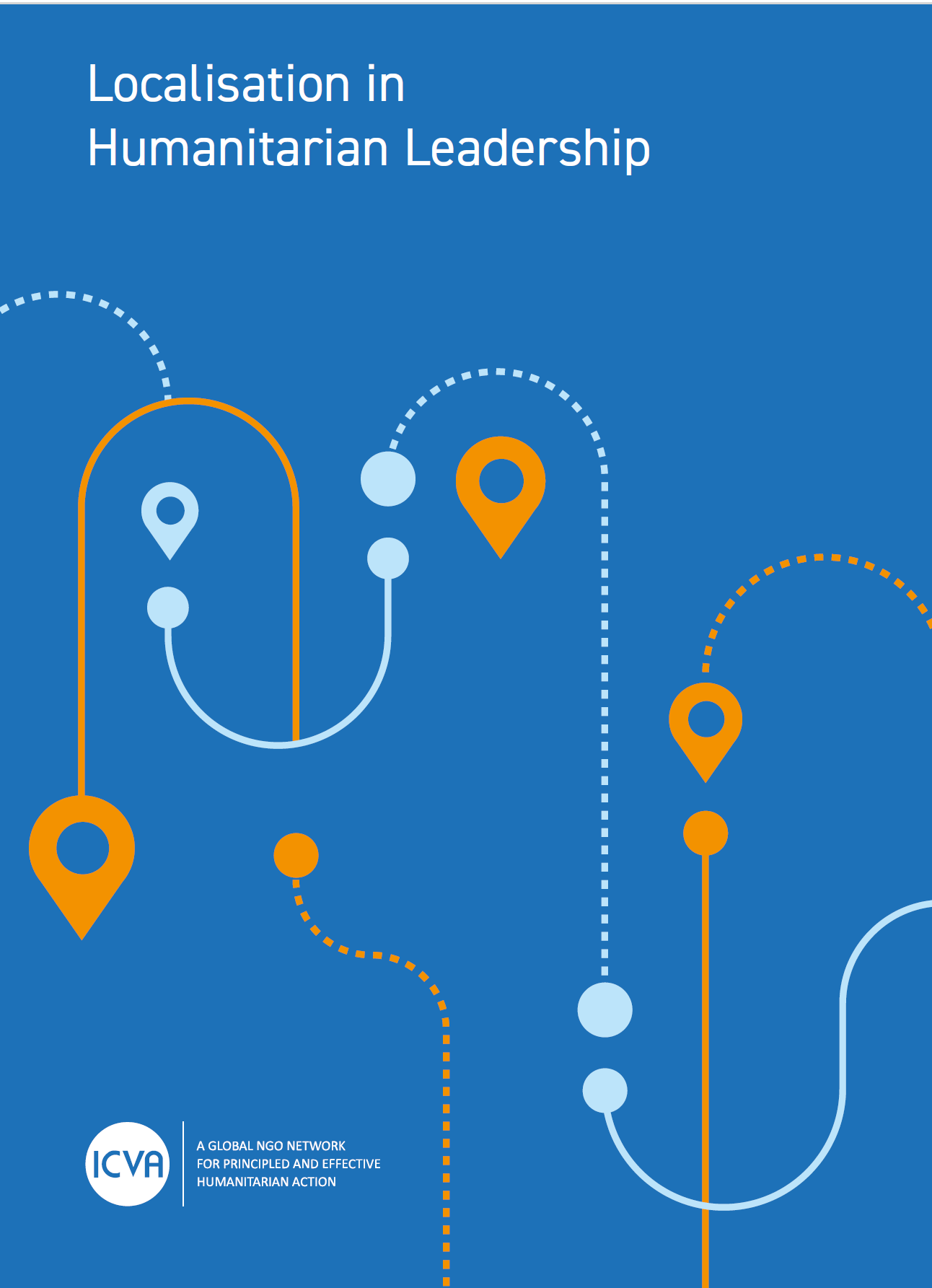
Localisation in Humanitarian Leadership – Country profiles of:
Click on the below links to access them.
ICVA, as the cofacilitator of the IASC Localization Task Force Five compiled a summary of good practices on the participation, representation and leadership of local actors in coordination mechanisms (including women-led organizations), along with approaches to engage affected populations in humanitarian response.
ICVA has also developed a practical guide to support good intermediary practice.

The IASC Localization Task Force Five compiled a summary of good practices on the participation, representation and leadership of local actors in coordination mechanisms. The Task Force is facilitated by ICVA and FAO.
Click on the below links to access the documents.
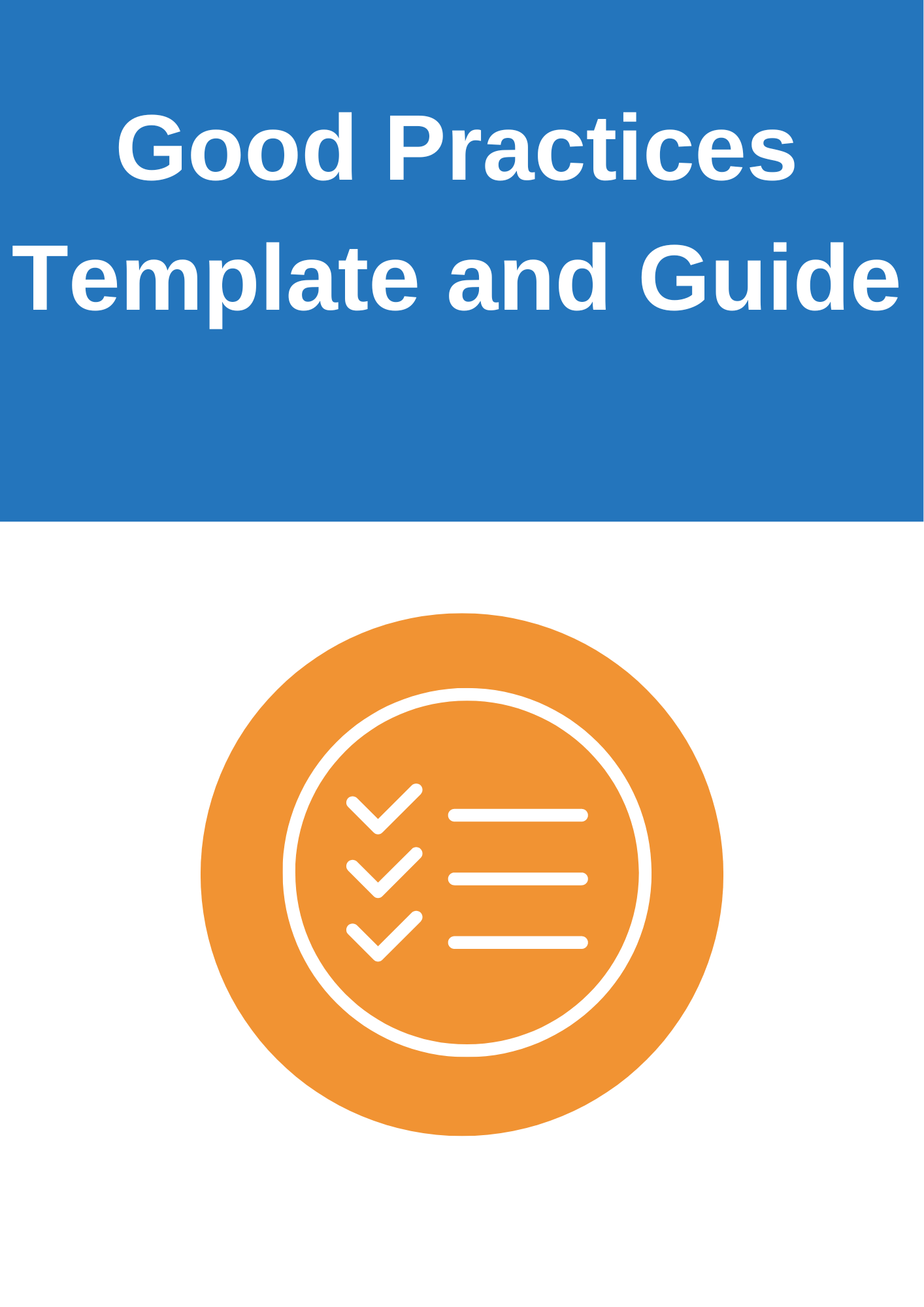
This template is a checklist that can assist you in capturing the necessary data, information and evidence to document a good practice.
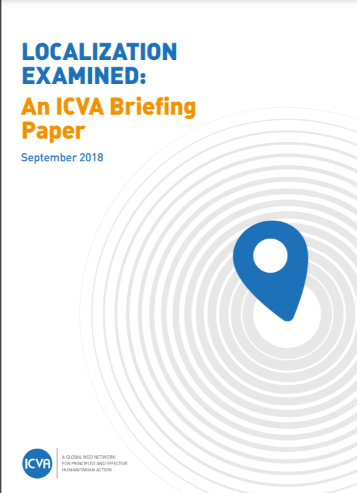
This briefing paper is based on a review of documents as well as ICVA’s participation in ongoing localization-related evaluations, research, working groups, workshops and dialogues.
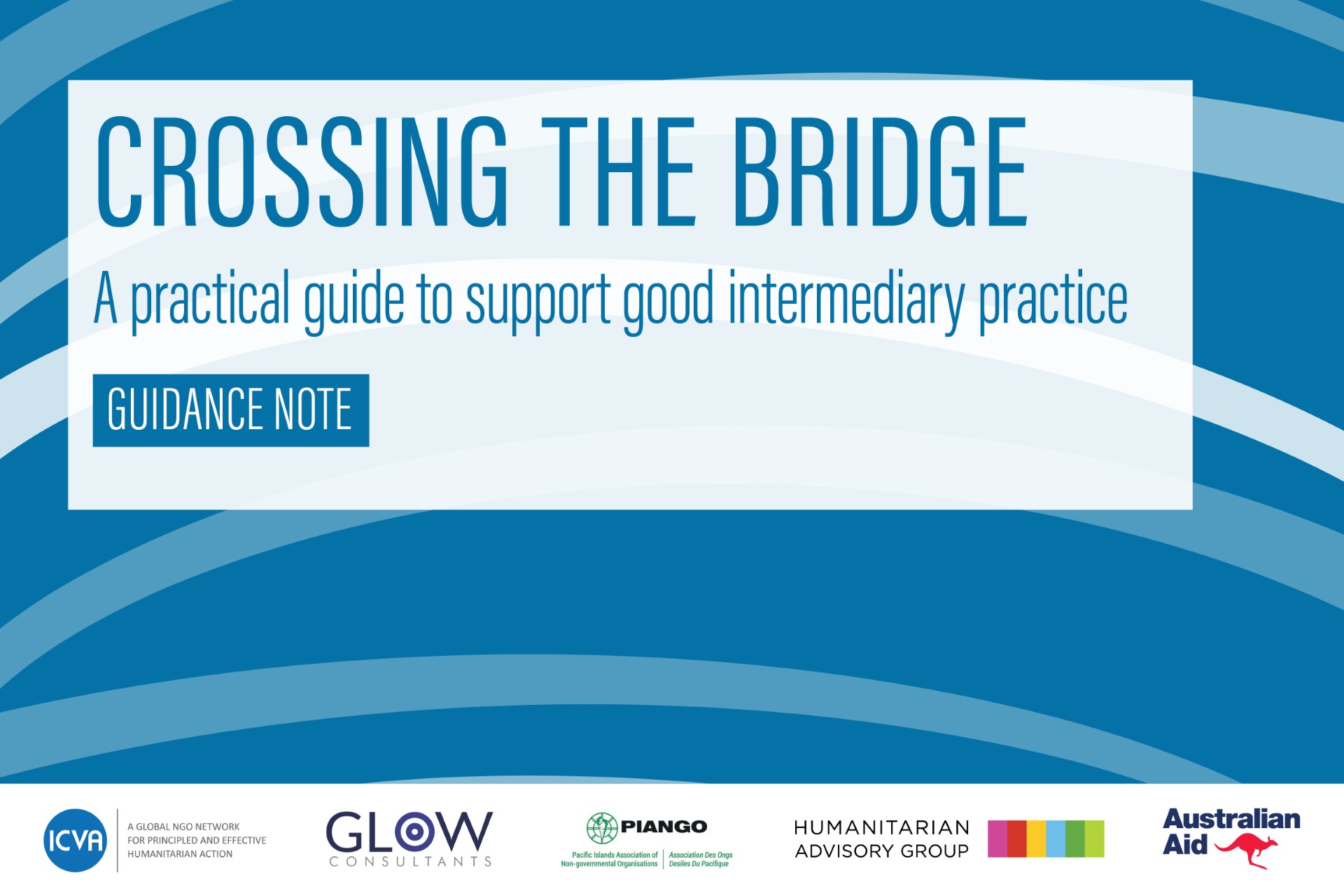
Partnerships are vital in promoting locally led response, laying the foundation for how local and national actors work with intermediary partners. A good intermediary bridges the gap between donors and local humanitarian actors, ensuring aid is delivered effectively and sustainably and shaping how partnerships are put into practice.
This publication builds on the Bridging the Intention to Action Gap: The Future Role of Intermediaries in Supporting Locally Led Humanitarian Action report. It aims to provide a practical guide for intermediary organisations to strengthen their partnership approaches, and highlights the role of donors and other funding instruments to catalyse this process. It was produced by HAG in partnership with GLOW Consultants and the Pacific Islands Association of Non-Governmental Organisations (PIANGO) and with input from the International Council of Volunteer Agencies (ICVA).
Click on the below link to read the Guidance Note.
The Localisation Measurement Framework and Tools to measure progress on localisation was developed by Humanitarian Advisory Group (HAG) and the Pacific Island Association of NGOs (PIANGO).
The framework provides an approach to measure progress on localization in a holistic way, and is intended to be contextualized as needed.
The framework looks at localisation under 7 interlinked priority areas: Partnerships, Leadership, Coordination and Complementarity, Participation (accountability), Policy Influence and Advocacy, Capacity, and Funding.
This approach can be adapted for use in operational settings by NGOs and humanitarian partners. It can help to inform dialogue, set localisation priorities, develop local or national localisation roadmaps, measure progress at sector-level, and/or discuss with programme partners how localisation can be built-in to future partnership agreements.
To date, ICVA has supported localisation baselines in Yemen and Ukraine with local partners Tamdeen Youth Foundation and the NGO Resource Centre. We will soon release baseline reports for Iraq and seven countries in West and Central Africa.

This report outlines the findings from the second phase of a localisation assessment initiative in Ukraine. It evaluates progress in localisation against the 2023 Humanitarian Localisation Baseline for Ukraine. Similar to the baseline, this progress review adapted and applied the localisation measurement framework and tools, initially developed by HAG and the Pacific Islands Association of Non-Governmental Organisations (PIANGO), as a standard method for assessing localisation progress at both national and regional levels. The second phase of research was carried out by the NGO Resource Center (NGORC), with support from InfoSapiens and the Humanitarian Advisory Group (HAG), and was financially backed by the International Council of Voluntary Agencies (ICVA), Helvetas, and NGORC’s principled donors (via shared overheads).
Click on the below link to read the report.
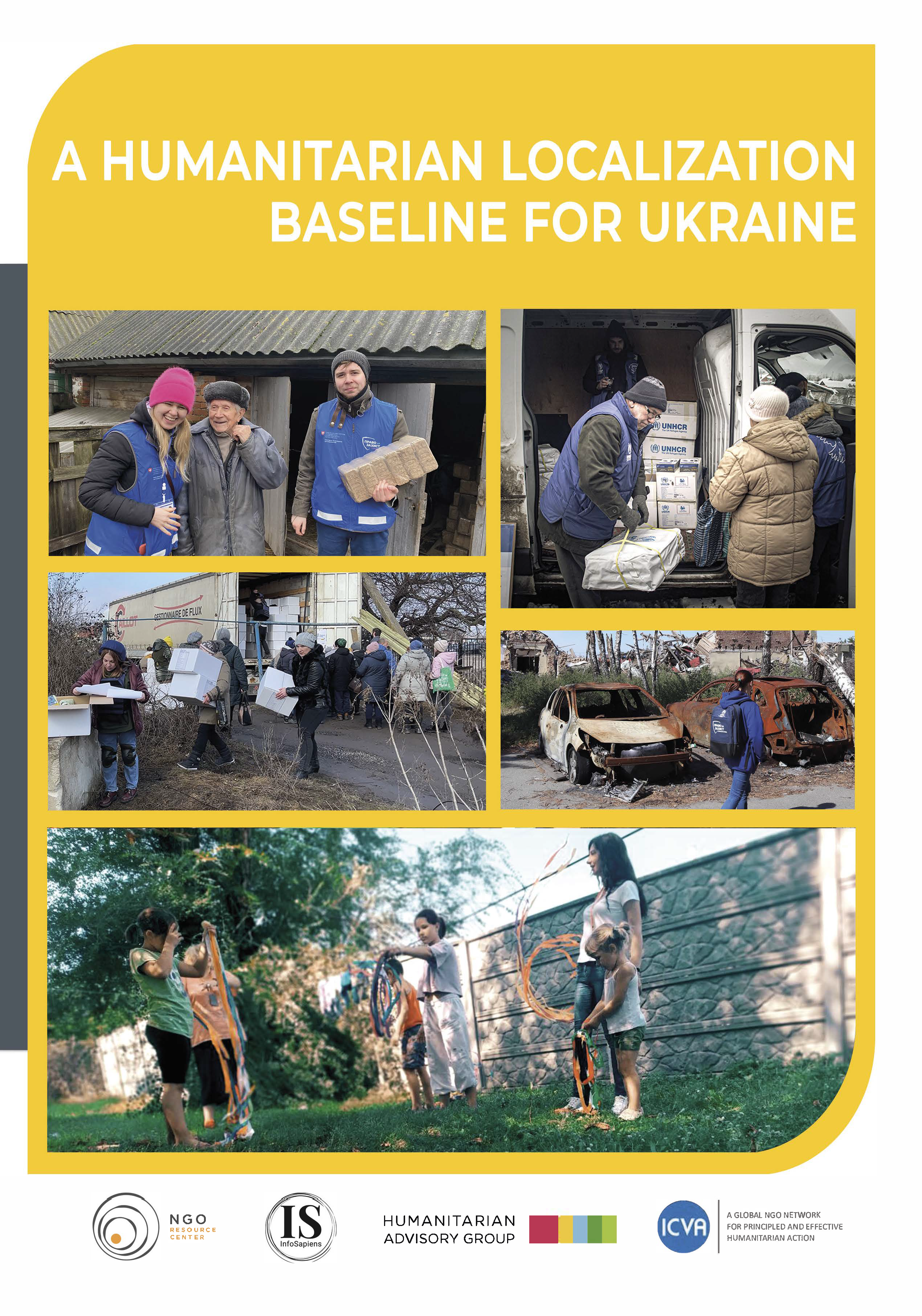
The understanding of localization in the humanitarian response in Ukraine remains a key policy and practice concern for donors and humanitarian actors. While localization of the humanitarian response in Ukraine is frequently stressed as a priority, there have been only limited efforts to date to build evidence, evaluate impact, strengthen accountability, and develop strategic tools that can facilitate practical approaches to local leadership and quality humanitarian response.
This initiative attempts to establish ‘where we are’ in terms of the localization of humanitarian assistance in the response. Stakeholders can then establish the direction of travel to reach an objective, both collectively and independently. It further creates a baseline from which actors in Ukraine and elsewhere can continue to regularly assess humanitarian localization development by using the same methodology as with other responses across the globe.
Click on the below links to read the report in English and Ukrainian.
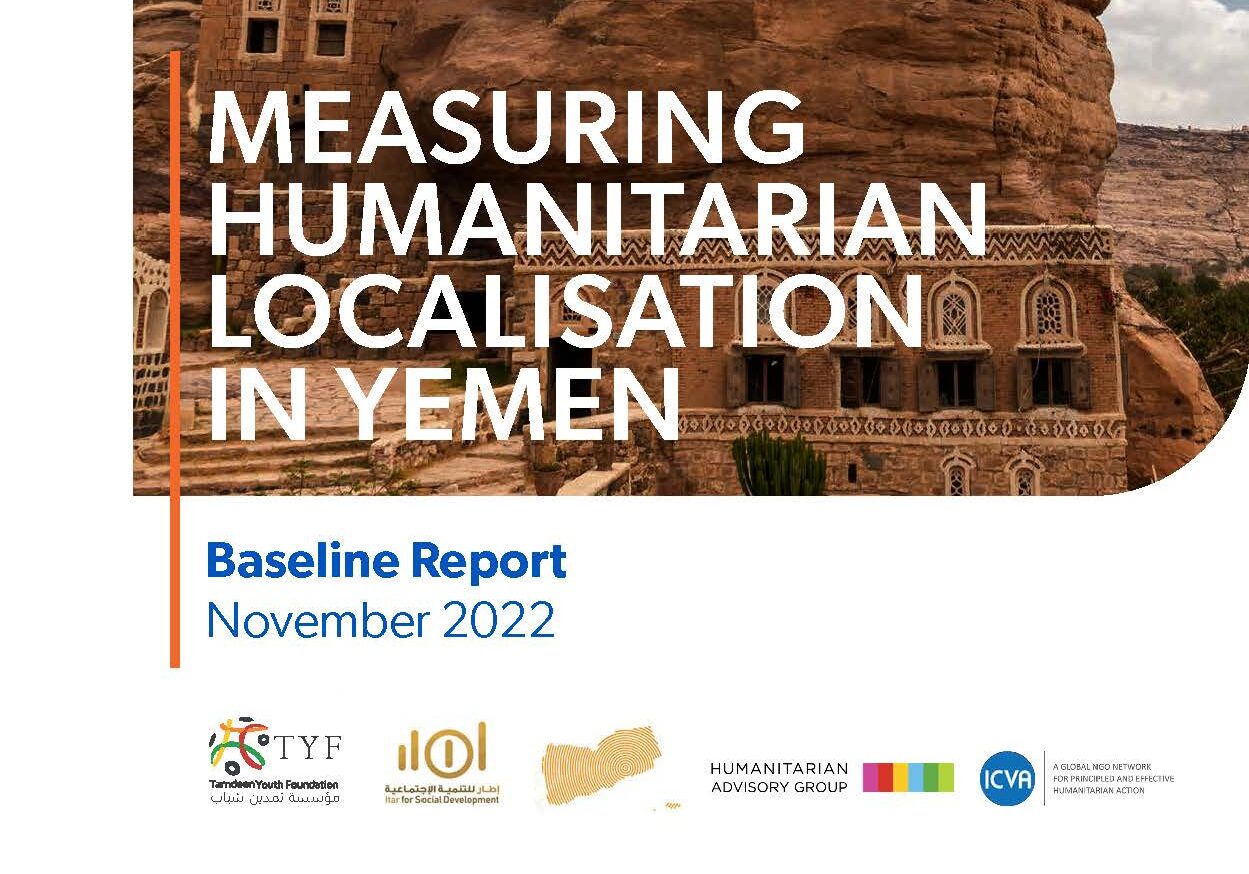
This report considers progress on localization in Yemen, measuring it across seven pillars: Partnerships, Funding, Capacity Strengthening, Coordination and Complementarity, Policy Influence, Leadership, and Participation.
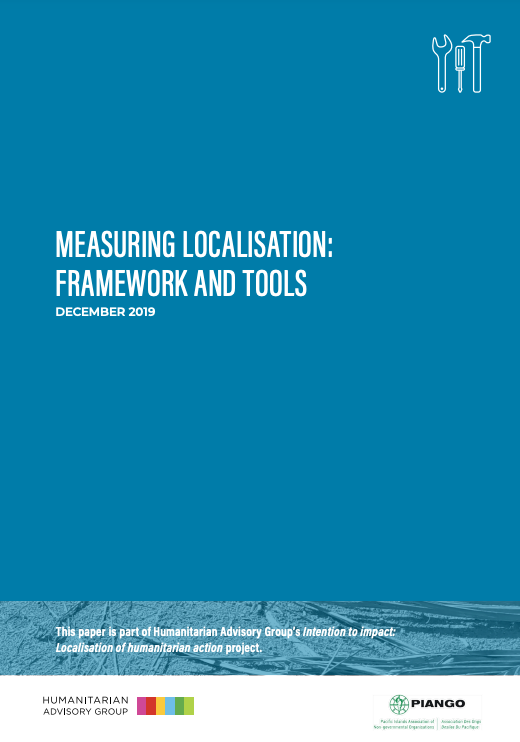
This document outlines an approach, including a framework and some tools, that can be used to measure the activity and impact of localised humanitarian action. This framework and set of tools provide a starting point that other humanitarian actors can adapt for their own organisational purposes, during a response or at a country level.
ICVA and our local partners have developed the world’s largest database of PSEA resources to support the prevention of sexual exploitation and abuse for staff and the communities they work in.
The database developed materials in some 40 languages, tailored to reach over 20 different age, gender and diversity profiles through more than 45 types of media materials, including print, video, audio, workshops, trainings and community discussion guides.
The ICVA Speakers Bureau aims to elevate the voices and perspectives of national and local humanitarian aid workers and ensure their meaningful participation in decision-making processes at national, regional and international levels.

Partnerships are vital in promoting locally led response, laying the foundation for how local and national actors work with intermediary partners. A good intermediary bridges the gap between donors and local humanitarian actors, ensuring aid is delivered effectively and sustainably and shaping how partnerships are put into practice.
This publication builds on the Bridging the Intention to Action Gap: The Future Role of Intermediaries in Supporting Locally Led Humanitarian Action report. It aims to provide a practical guide for intermediary organisations to strengthen their partnership approaches, and highlights the role of donors and other funding instruments to catalyse this process. It was produced by HAG in partnership with GLOW Consultants and the Pacific Islands Association of Non-Governmental Organisations (PIANGO) and with input from the International Council of Volunteer Agencies (ICVA).
Click on the below link to read the Guidance Note.
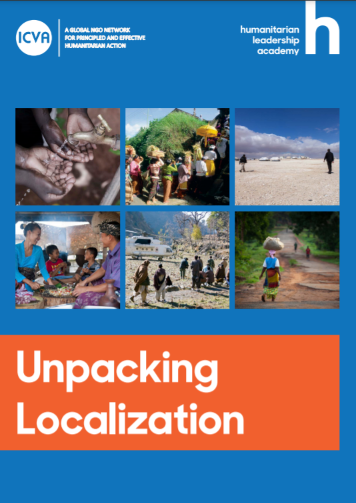
ICVA and the Humanitarian Leadership Academy have developed this paper to support local, national and international NGOs to ‘unpack’ localization in a constructive manner.
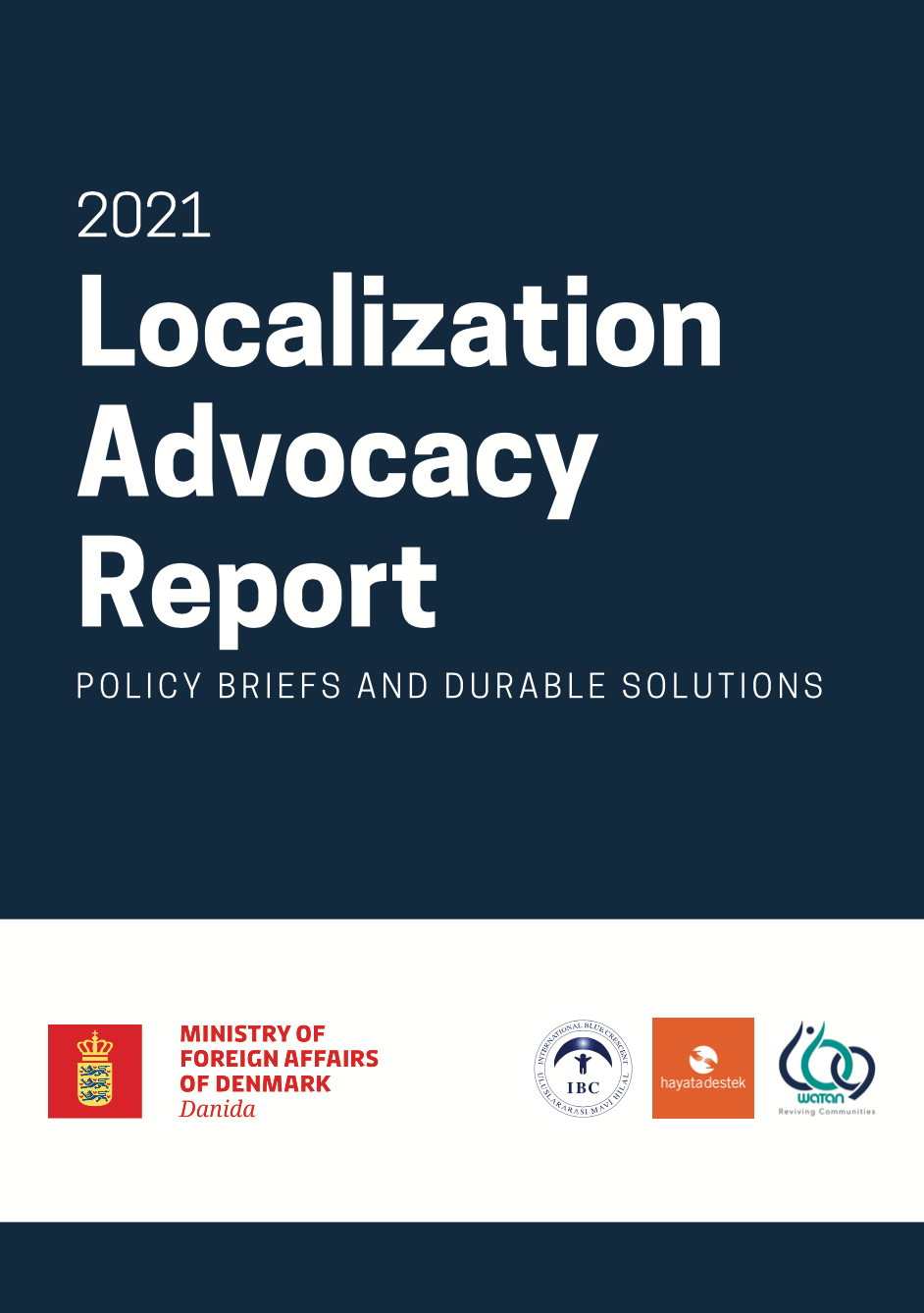
A HOLISTIC APPROACH TO MIGRATION ISSUE IN TURKEY
Policy Brief on Social Cohesion, Economic Empowerment, Voluntary Return and Resettlement
This policy brief paper is retrieved from the outcomes of the workshop that brought local organizations in Turkey together with an aim to look for policy recommendations for the refugees and migrants in Turkey

This briefing paper is based on a review of documents as well as ICVA’s participation in ongoing localization-related evaluations, research, working groups, workshops and dialogues.
The “triple” nexus refers to the interlinkages between humanitarian, development and peace actors. Following the recommendations from the World Humanitarian Summit (WHS), the UN’s “new way of working”, Agenda 2030 and the Sustainable Development Goals (SDGs), there has been a lot more reference to the “triple” nexus, and how the humanitarian, development and peace actors are expected to work towards collective outcomes over multiple years.
The 2018 ICVA Annual Conference and the Learning Stream webinars both focused on the Humanitarian, Development and Peace Nexus providing an opportunity for further discussions with actors on this topic.
The Nexus collection: a podcast series for humanitarians. A podcast series by IASC Results group 4.
Listen on Soundcloud a series of podcasts about the nexus.
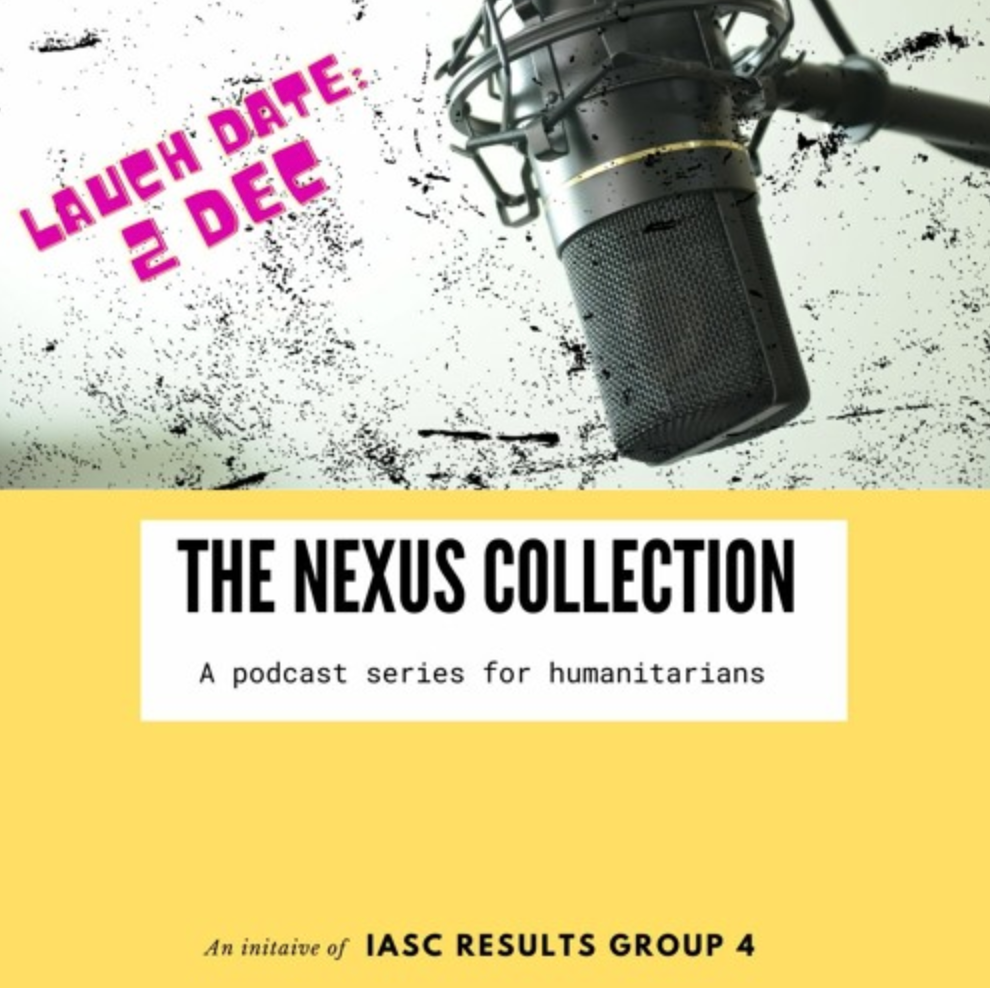
The Nexus collection: a podcast series for humanitarians. A podcast series by IASC Results group 4.
Listen on Soundcloud a series of podcasts about the nexus.
This series includes webinars on the following topics:
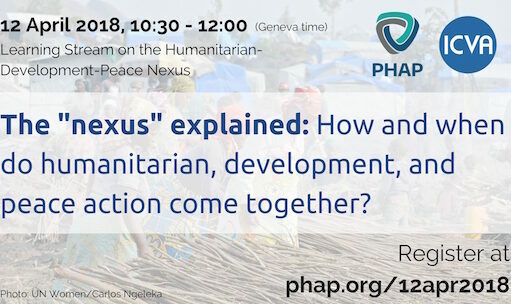
At the World Humanitarian Summit in 2016, the UN and World Bank have committed to a “new way of working” that transcends the humanitarian-development divide. This concept has been considered in terms of UN reform and the “triple nexus” – the nexus between humanitarian, development, and – when appropriate – peace. However, many NGOs and partners are yet to grapple with what this means for affected persons and the system as a whole.
This series includes webinars on the following topics:
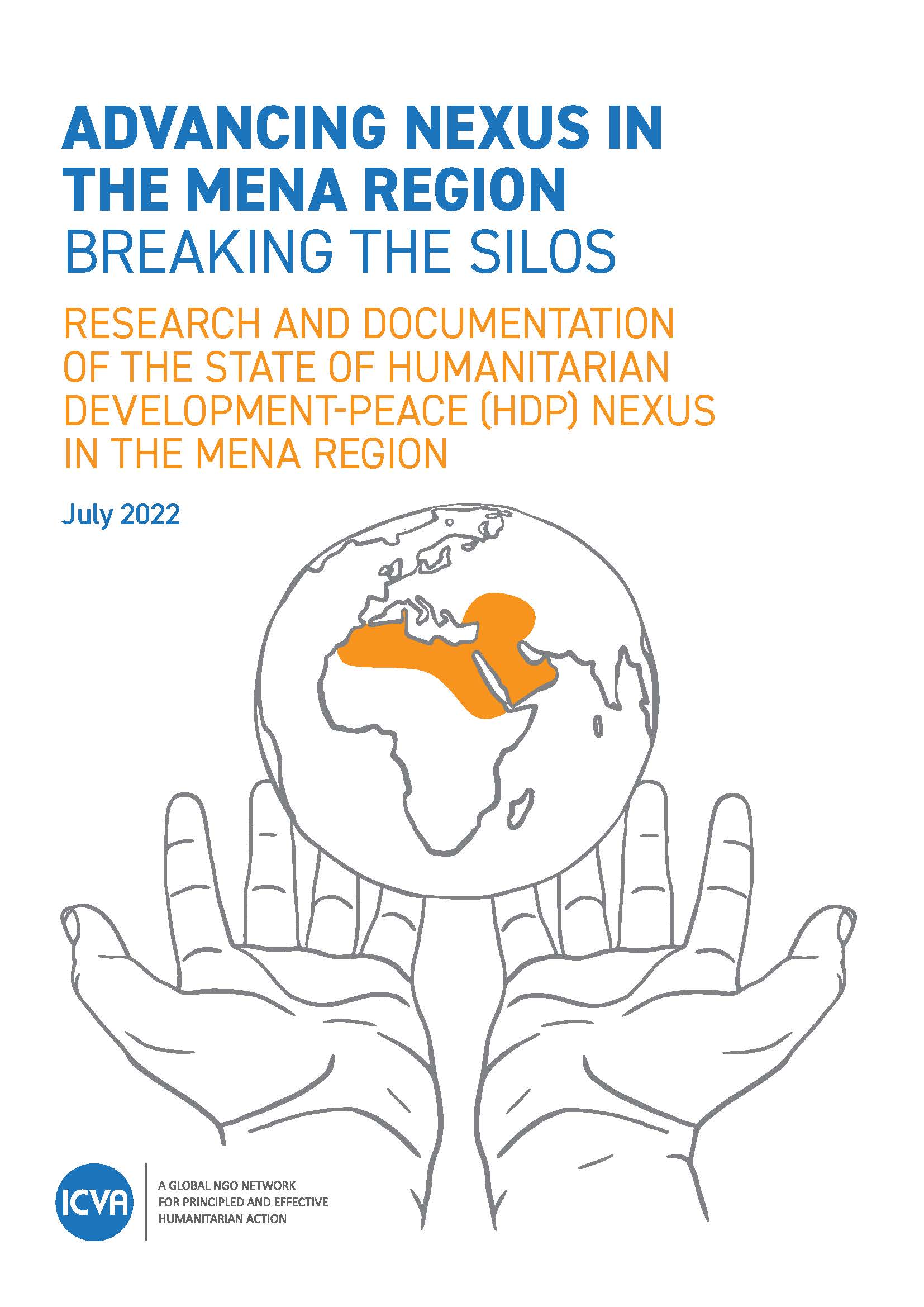
The research aims to better understand the current stage of the operationalization of the The Humanitarian- Development – Peace Nexus approach in the selected MENA region countries of Iraq, Syria, Syria cross-border from Turkey, Jordan, Lebanon, Palestine, Yemen, and Libya. It documents policy changes and situational changes that reflect the NEXUS approach. It also provides good practices and examples to various actors to help them develop guiding tools and strategic thinking around inclusion of NEXUS approaches in strategies, programs, etc.
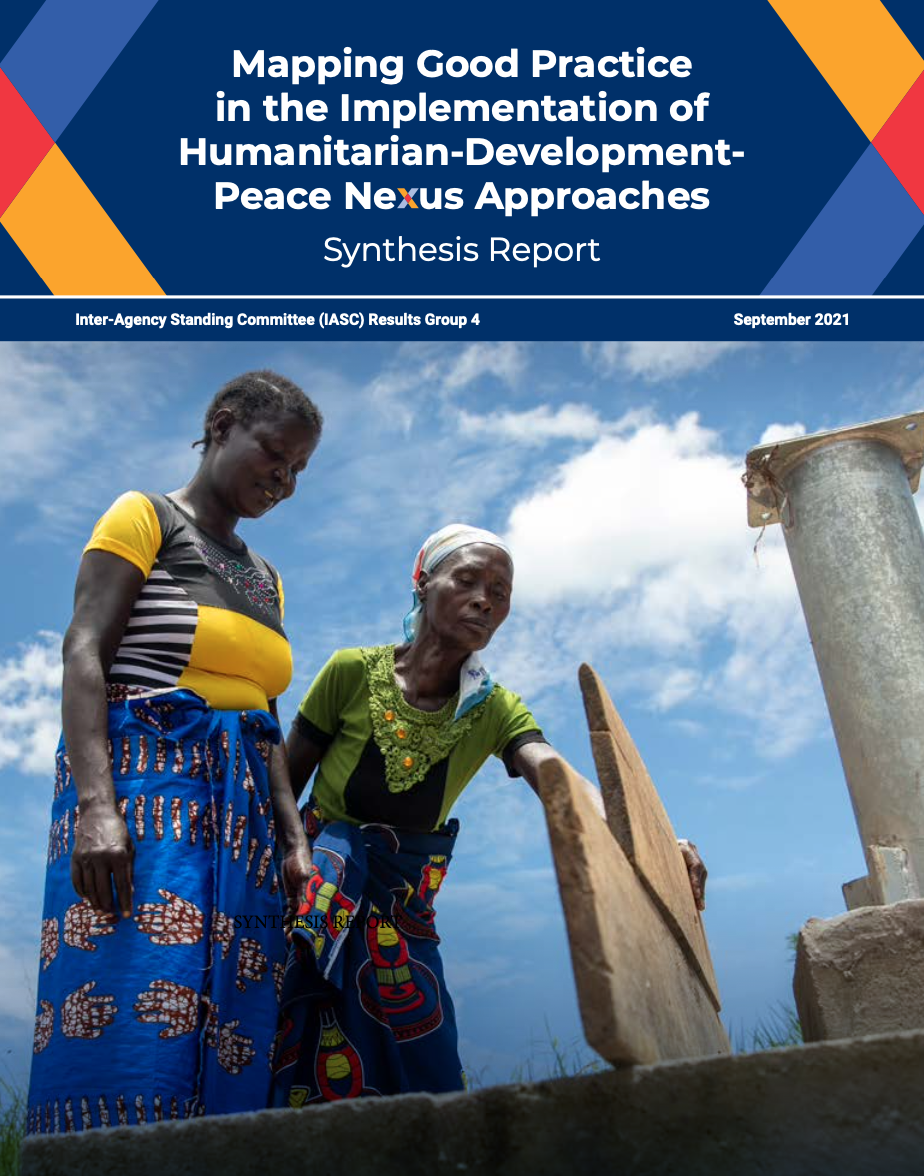
This report provides a summary of the initiative Mapping good practice in the implementation of humanitarian-development-peace (HDP) nexus approaches carried out by IASC Results Group 4.
It reflects findings across 16 countries, with individual country reports available on the IASC website.
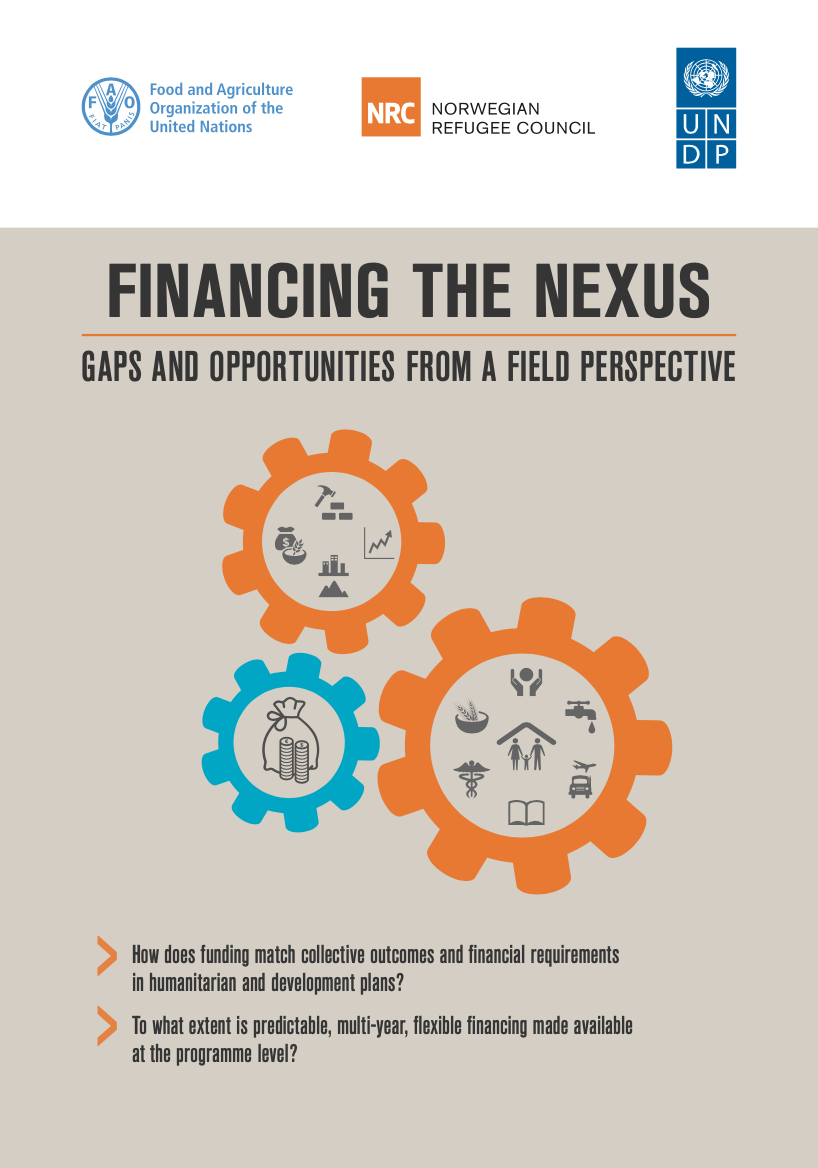
This study contributes to the Inter-Agency Standing Committee (IASC) humanitarian financing priorities of improving “aid effectiveness through more effective humanitarian- development funding flows and mechanisms”. It has two goals: to document the extent to which predictable, multi-year flexible financing is available at the programme level; and to understand the extent to which funding matches Collective Outcomes or the financial requirements of interoperable humanitarian and development plans.
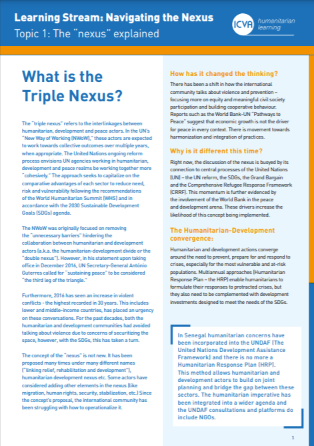
Briefing paper
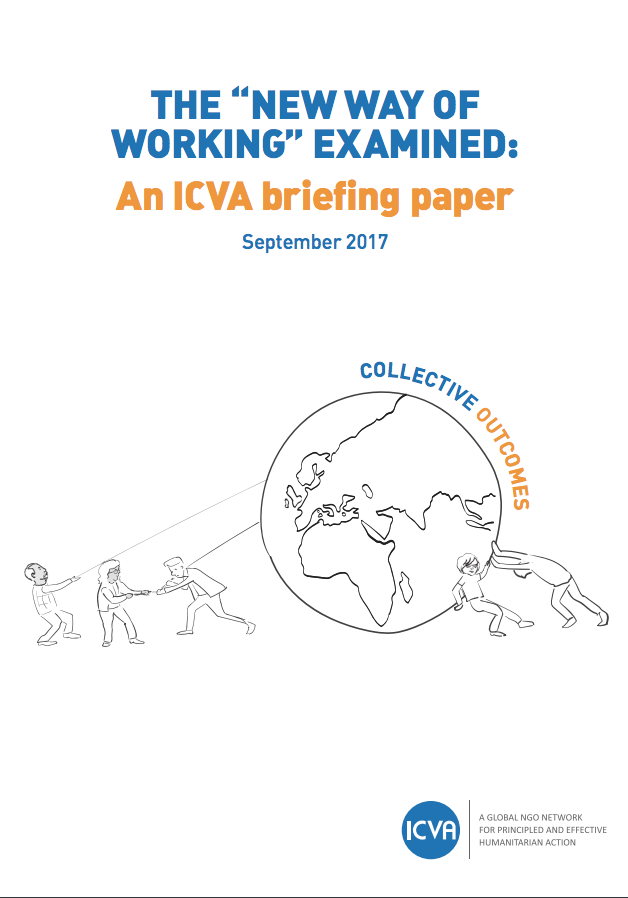
ICVA briefing paper on the “new way of working”

ICVA is a global network of non-governmental organisations whose mission is to make humanitarian action more principled and effective by working collectively and independently to influence policy and practice.
International Council of Voluntary Agencies
NGO Humanitarian Hub,
La Voie-Creuse 16, 1202, Geneva, Switzerland
Email: secretariat@icvanetwork.org
A curation of monthly updates, latest news, tools, and events around forced migration, coordination, financing, and cross cutting issues all sent straight to your inbox.